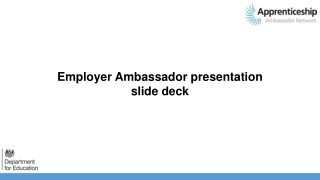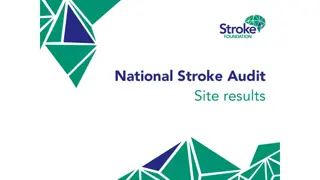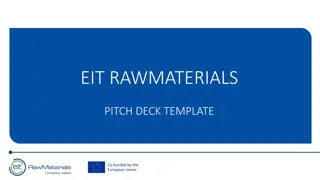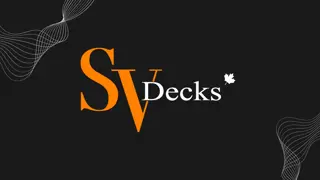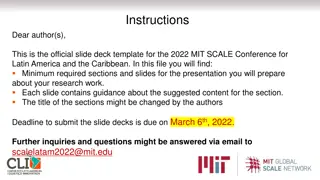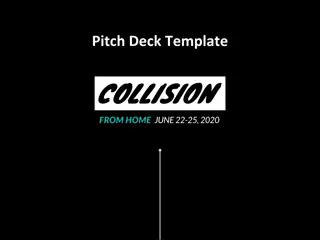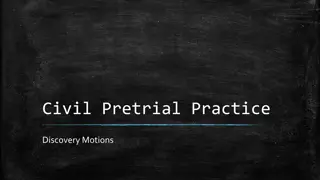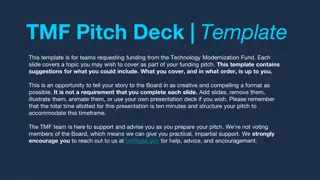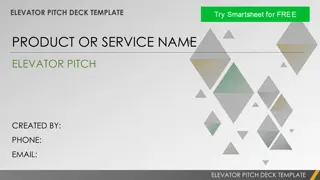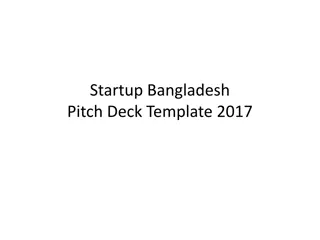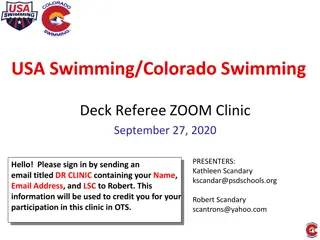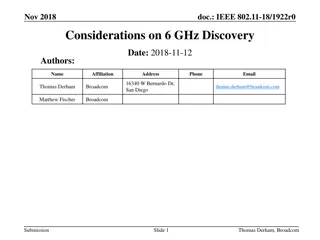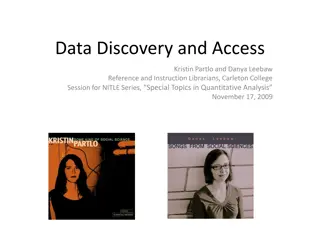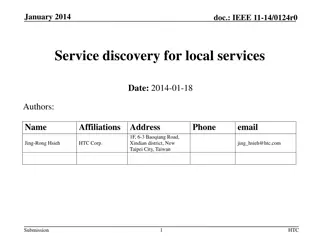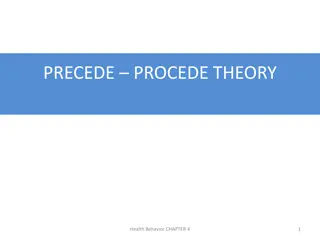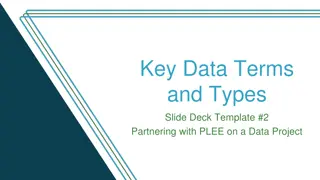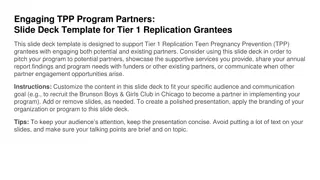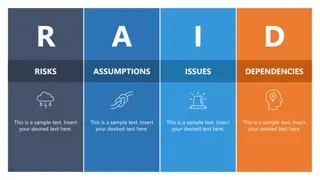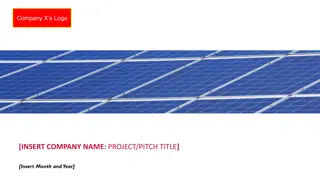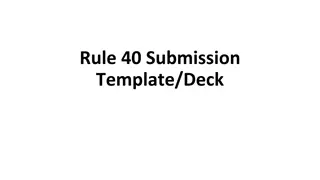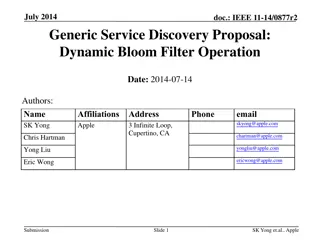Project Discovery Not to Proceed Overview
This presentation outlines the findings of the Discovery phase for a project/program, detailing the reasoning for not moving forward with implementation at this time. It covers the purpose, intended outcome, problem statement, scope considerations, impact analysis, and key learnings. The goal is to foster a shared understanding among team members.
Download Presentation

Please find below an Image/Link to download the presentation.
The content on the website is provided AS IS for your information and personal use only. It may not be sold, licensed, or shared on other websites without obtaining consent from the author.If you encounter any issues during the download, it is possible that the publisher has removed the file from their server.
You are allowed to download the files provided on this website for personal or commercial use, subject to the condition that they are used lawfully. All files are the property of their respective owners.
The content on the website is provided AS IS for your information and personal use only. It may not be sold, licensed, or shared on other websites without obtaining consent from the author.
E N D
Presentation Transcript
Project/Program Discovery Not to Proceed <Project/Program Name> <Date> Monday <Time Slot> Holyoke 561 A discovery deck Not to Proceed provides the information a team has learned that has lead to a recommendation to not proceed with an implementation. Delete all yellow notes from this presentation.
Purpose and Intended Outcome Purpose To present the findings of the Discovery phase for Project/Program: X Intended Outcome To create a shared understanding of the potential opportunity and reasoning for deciding not to move forward with an Implementation strategy at this time This presentation assumes the project/program team has put significant thought into objectives, goals, KPIs, staffing and implementation approach. 2
Problem / Opportunity Statement A problem statement should be concise, written in laymen s terms and can include the following: A brief description of the problem and the metric used to describe the problem Where the problem is occurring by process name and location Who is affected by the problem (number of people, names of departments, schools, centers, etc.) The time frame over which the problem has been occurring The size or magnitude of the problem If possible, cost metrics This slide should be concise. Think Elevator Pitch when considering content length 3
This slide should not be complicated. Each response should be limited to a single phrase or sentence. Scope Considered What changes because of this project/program? <Replace this text with: What currently exists that would be updated due to this effort? (Services, Products, Processes, etc.)> <Replace this text with: What would be newly created due to this effort? (Services, Products, Processes, etc.)> What will be new? <Replace this text with: What legacy components would be deprecated due to this effort? (Services, Products, Processes, etc.)> What will go away? Impact Considered What groups and orgs will benefit? <Replace this text with: Who would be the intended audience and how would they benefit> Dependencies on other projects/programs? <Replace this text with: What other projects/programs or ongoing efforts would this Project rely upon?> Projects/programs depending on this effort? <Replace this text with: What other projects/programs would rely on functionality provided from this effort?> <Replace this text with: What areas would be out of scope for this project/program?> What is out of scope? 4
What we learned What did you learn about the proposed scope/service as it relates to the University What did you learn about the proposed goals and impact for the project/program? What did you learn about the potential impact of this effort on Harvard organizational structures? 5
Discovery Recommendation This project/program should not move to formal Planning at this time. This project/program should [not] be considered at a later date Explanation for not moving forward with planning (Why?) Explanation for later consideration or not (Why or why not should it be reevaluated) If it should be reevaluated when should, or what trigger would invoke, the reevaluation? 6
Questions and Answers? Does the recommendation to not move forward with planning align with the expectations of the governing body? Does the recommendation for future consideration meet expectations? Other Questions? Every Discovery presentation should reserve time for Q&A from the audience and to ask the governing board to validate the approach and provide guidance and input 7
If necessary add additional slides beyond this point to support the update and to assist with pre-reading. If unnecessary, please delete this and next slide. Supporting Materials 8
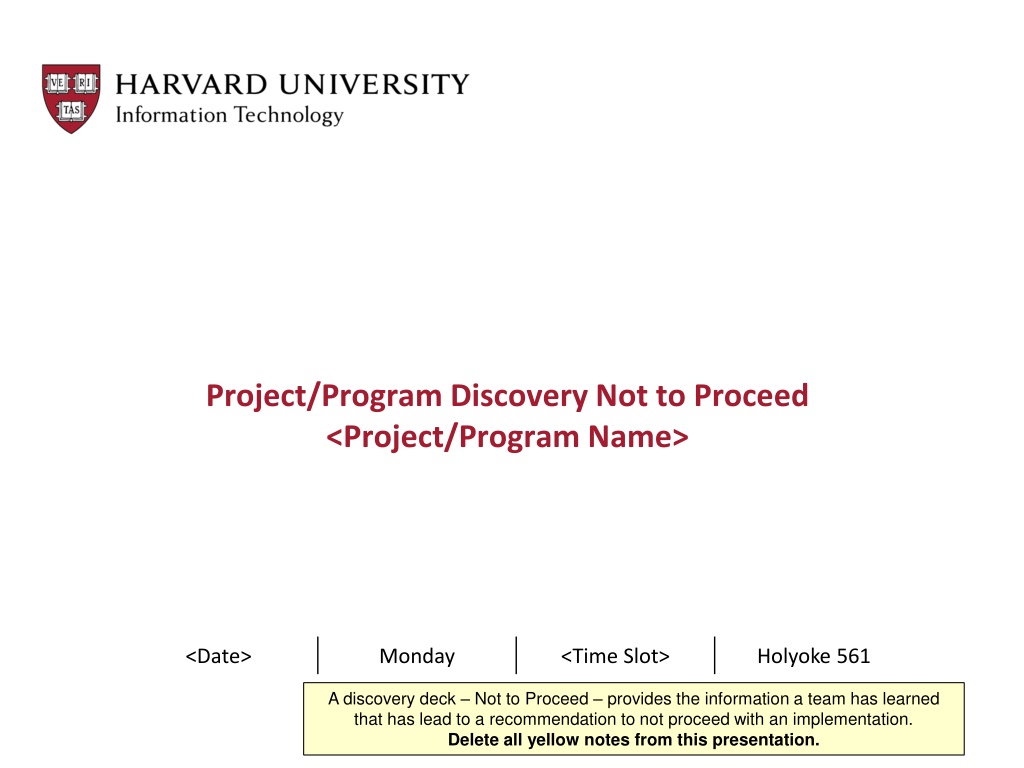
 undefined
undefined





